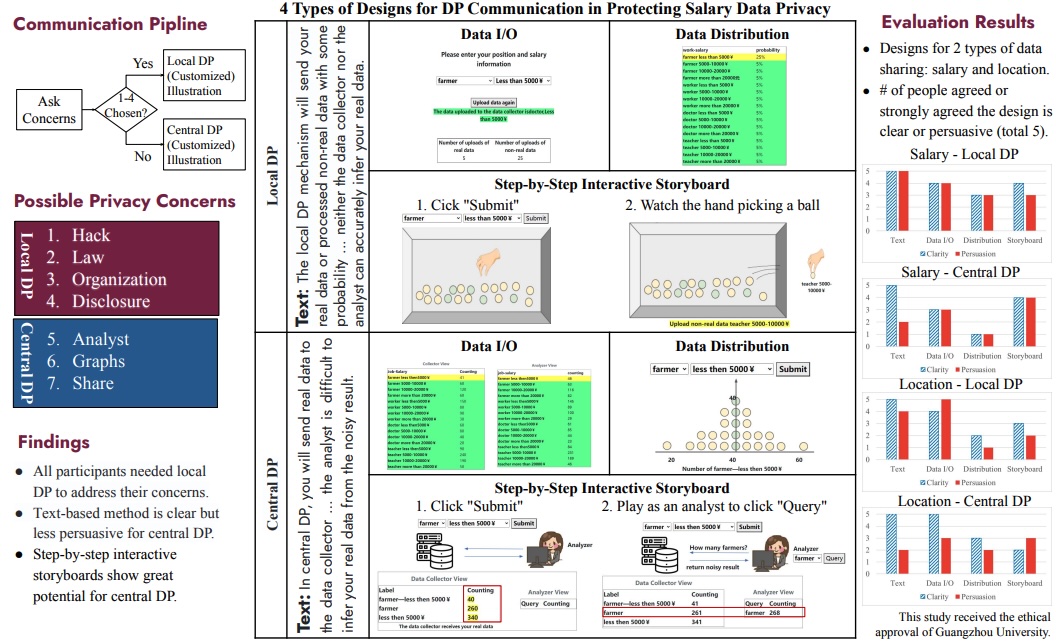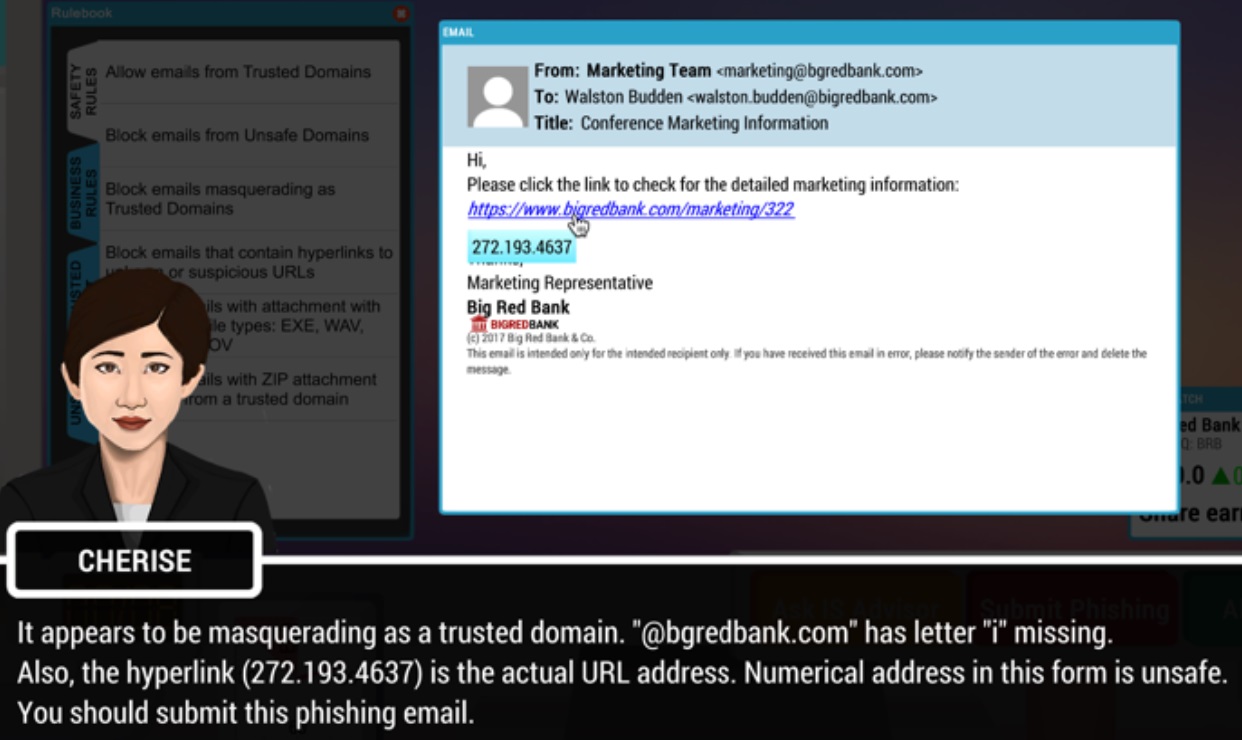Hi there! I am a human-computer interaction (HCI) researcher specializing in usable privacy and security. As privacy and security technologies become more advanced, users often passively accept protective measures without fully understanding or verifying them. I believe user autonomy is essential for managing privacy and security in today’s complex cyberspace, with technology serving primarily as a supportive tool. My research advances this principle by designing evidence-based interactive interventions, such as educational video games, explanatory visualizations, and AI assistants. These digital tools empower users to better protect themselves and make informed decisions about managing their personal information. My research has been published in leading venues including ACM CHI, IEEE S&P, and Information Sciences.
I am a postdoc in the Computer Science Department at Virginia Tech, working with Prof. Yaxing Yao. I am fortunate to have worked as a postdoc at HKUST VIS Lab, following my Ph.D. in computer science from Cornell University (2021). Before that, I recieved my joint first-class honours bachelor degrees in computer science from University of Strathclyde, Glasgow, U.K. and BUCT, Beijing, China.
🔥 News
- 2025.04: 🎉 Our paper on facilitating family digital privacy discussions was accepted to IEEE S&P 2025!
- 2025.03: 🎉 Join my Mar 25 GMU guest lecture on user-tailored differential privacy in the digital age!
- 2024.10: 🎉 Join my Oct 25 Virginia Tech talk on interactive gaming & intelligent agent systems for privacy & security!
- 2024.08: 🎉 I am honored to receive the AI 2000 Most Influential Scholar Award Honorable Mention in security and privacy!
- 2024.07: 🎉 I am serving as an Associate Chair of ACM CHI 2025. Please submit your amazing work here!
- 2024.05: 🎉 I'm co-organizing a SOUPS workshop on revolutionizing privacy & security EdTech. Join us on Aug 11!
- 2024.02: 🎉 Join my April 18 UMD BBL talk on teenagers' implicit struggles with info tech safety & accessibility!
- 2023.07: 🎉 I am serving as an Associate Chair of ACM CHI 2024. Please submit your amazing work here!
- 2022.11: 🎉 I have been awarded the Fellowship of China Postdoctoral Science Foundation! A big thank you to my research team!
📝 Selected Publications

Supporting Family Discussions About Digital Privacy Through Perspective-Taking: An Empirical Investigation in the proceedings of the IEEE Symposium on Security and Privacy (S&P), 2025.
Authors: Zikai Wen, Lanjing Liu, Yaxing Yao
Highlights: We present on the results of a structured activity promoting perspective-taking in privacy discussions with 13 parent-child dyads. We identified key communication challenges and addressed these challenges through scaffolded, moderated conversations between parents and children, to help families treat privacy as a spectrum and something that is context-dependent.

The Influence of Explanation Designs on User Understanding Differential Privacy and Making Data-Sharing Decision in Information Sciences, Sep. 2023.
Authors: Zikai Alex Wen, Jingyu Jia, Hongyang Yan, Yaxing Yao, Zheli Liu, Changyu Dong
Highlights: Our explanatory illustration design simplifies the understanding of differential privacy protection of numerical data. A survey of 228 people shows visual illustration outperformed text-based explanation in understanding differential privacy. Learning about privacy-enhancing technology does not necessarily increase the willingness to share data.

What.Hack: Engaging Anti-Phishing Training Through a Role-Playing Phishing Simulation Game in the proceedings of the SIGCHI Conference on Human Factors in Computing Systems (CHI), 2019.
Authors: Zikai Alex Wen, Zhiqiu Lin, Rowena Chen, Erik Andersen
Highlights: People being phished is due in part to insufficient and tiresome user training in cybersecurity. we designed the game What.Hack, which not only teaches phishing concepts but also simulates actual phishing attacks in a role-playing game to encourage the player to practice defending themselves.
Pointer: Game
📖 Full Publications
Symbol * indicates that I am the (co-)corresponding author. My current citation statistics on Google Scholar:
🎖 Awards and Grants
- 2024 AI 2000 Most Influential Scholar Award Honorable Mention in Security and Privacy from AMiner
- 2022 The Fellowship of China Postdoctoral Science Foundation ($80K RMB) from CPSF
- 2022 Outstanding Service Award from IEEE MMSP
- 2017 The Student Game Design Competition Runner-Up at ACM CHI
- 2014 The Andrew McGettrick Prize from University of Strathclyde, Glasgow
- 2014 The Outstanding Graduate of Beijing from Beijing Municipal Education Commission
🎮 Fun Stuff

Tori Tori Panic at Ludum Dare #36
Team: Jeff Huang, Yiming Li, Changxu Lu, Zikai Alex Wen
About: A stealthy archery game made in 72 hours for the "Ancient Technology" theme. Sneak around, take aim, and quietly shoot unsuspecting birds with pixel-perfect precision. Just don’t let them catch you.

